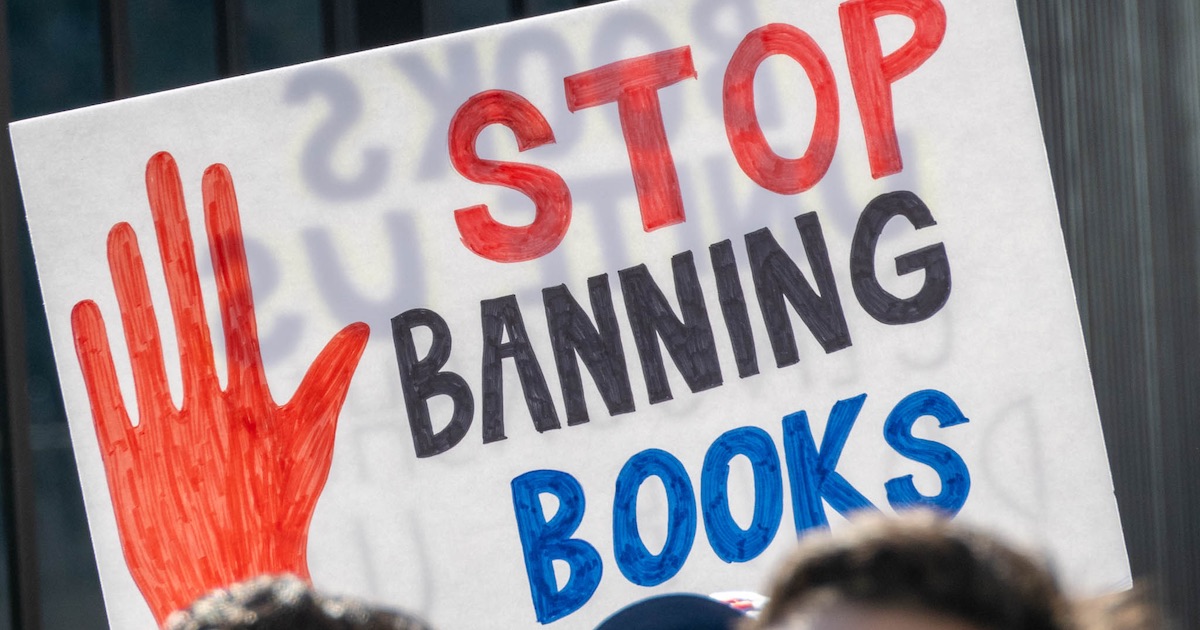
01 Apr 2024 Craig DeLuz: The Hidden Truth In The Battle Over Books In American Schools
In a commentary published at Issues & Insights, Project 21 Ambassador Craig DeLuz addresses so-called “book banning” within American schools:
While the majority of Americans believe that sexually obscene material has no place in school libraries, the education establishment continues to champion the idea that it is necessary and even “inclusive” to expose children to explicit images and descriptions of sexual acts….
It is not about censorship or restricting the free exchange of ideas, as many would have us believe. It is about preserving the innocence and well-being of our children.
Read Craig’s entire commentary below.
In the ongoing debates surrounding book bans in American schools, there is one narrative that continues to dominate the discussion – that those who oppose the presence of certain materials in school libraries are nothing more than “book banners,” seeking to censor and restrict the free exchange of ideas.
Last year, a controversy surrounding a Miami educational institution captured global attention, as reports emerged claiming that the renowned poem recited by Amanda Gorman at President Joe Biden’s inauguration had been prohibited within its walls. However, a more thorough examination of the situation reveals a different narrative altogether.
In reality, the K-8 school in question opted to relocate Gorman’s masterful work from the elementary section of its library to the middle school division. This measure was not taken with the intent to censor the piece, but rather as a strategic choice to align the poem with the appropriate age group.
In similar fashion, the head of the United Federation of Teachers, Randi Weingarten, wasted no time in voicing her outrage over the termination of a Texas educator who chose to read Anne Frank’s iconic memoir to her students. Taking to the popular social media platform X, Weingarten exclaimed, “The blatant dismissal of a teacher for exposing her students to The Diary of Anne Frank speaks volumes on its own!”
The book in question, “Anne Frank’s Diary,” is not the original work that has touched the hearts of millions, but rather an adaptation that emphasizes sexual passages. It was not, as many have claimed, a “censored” version of Anne Frank’s story, but one that deliberately chose to emphasize the most salacious and explicit elements. The educator tasked her eighth-grade pupils with reciting and debating a sexually suggestive excerpt from the adaptation, in which Anne inquires if her friend would be willing to expose their breasts to one another and shares a strong longing to engage in a kiss. Unbeknownst to many, this incident, branded as a potentially oppressive act by the pinnacle of the American education system, was simply a response from concerned parents to the educator’s decision to excessively highlight erotic themes in the beloved story of Anne Frank.
It is no wonder that parents objected to its presence in their children’s school libraries, concerned about the presence of pornographic material in such a sacred and beloved work.
However, rather than address these valid concerns, the education establishment and media have chosen to portray these parents as narrow-minded and bigoted. They have been accused of attempting to ban a book that is considered a staple of literature and a symbol of resistance against oppression. Yet, the truth is that the majority of these objections were not about race or LGBTQ identity, as it has often been portrayed. In fact, only a mere 7% of these objections mentioned LGBTQ without also including the word “sexual.” And of the 10 books that were the most frequently omitted, all of them included shockingly risqué references to sexual encounters. For instance, the top-voted “Gender Queer” showcases a graphic illustration of a sex act performed on a toy and includes a lewd section of text.
Then there is Toni Morrison’s “The Bluest Eye,” published in 1970, a tale chronicling the journey of a young black girl who struggles with feelings of inadequacy due to her lack of blue eyes. While critically acclaimed for its commentary on race and racial identity, this novel also delves into themes of pedophilia, rape, and even incest. It is as a result of this content (not its racial commentary as many have suggested) that it has faced frequent calls for censorship and has been banned from classrooms in numerous school districts throughout the United States.
These are just a few highlights of the deceptive tactics used by those who wish to paint concerned parents as intolerant and hateful.
What is truly at the heart of these book “bans” is the moral disconnect between the majority of Americans and the education establishment. While the majority of Americans believe that sexually obscene material has no place in school libraries, the education establishment continues to champion the idea that it is necessary and even “inclusive” to expose children to explicit images and descriptions of sexual acts. This disregard for the values and beliefs of the wider community is concerning and raises questions about the true intentions behind opposition to relocating books with explicit content to areas where they are age-appropriate.
It is not about censorship or restricting the free exchange of ideas, as many would have us believe. It is about preserving the innocence and well-being of our children. It is about standing up against the normalization of sexually explicit material in places where children should feel safe and protected. Ultimately, it is about upholding our values and principles as a society.
In the ongoing debates about censorship, we must not allow ourselves to be swayed by misleading narratives and manipulative language. We must continue to have honest and open discussions about what is truly at stake – the moral compass of our society and the well-being of our children. Anything less would be a disservice to our future generations.
Craig J. DeLuz is a member of the National Center for Public Policy Research’s black leadership group, Project 21. This first appeared at Issues & Insights.




